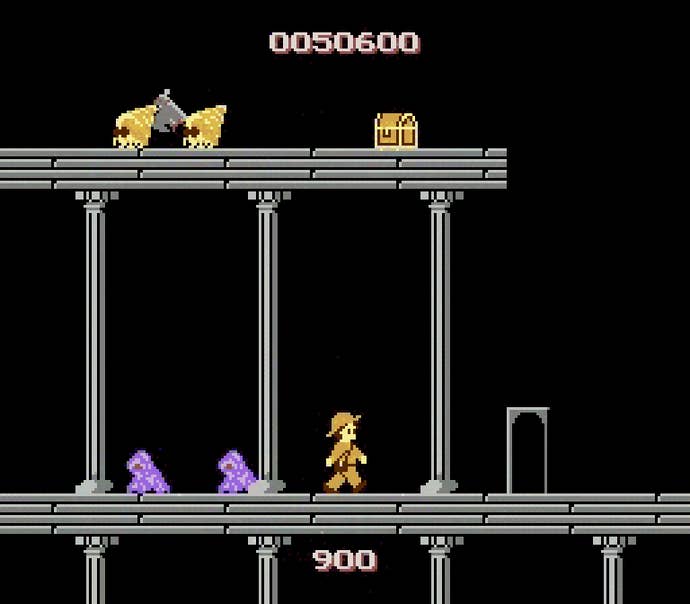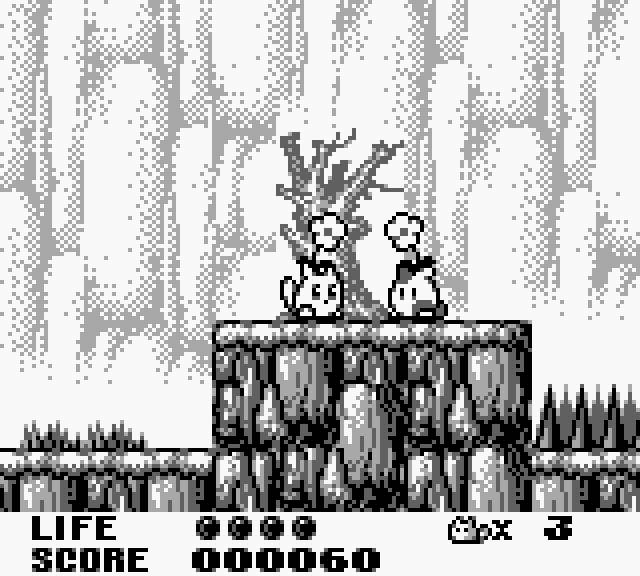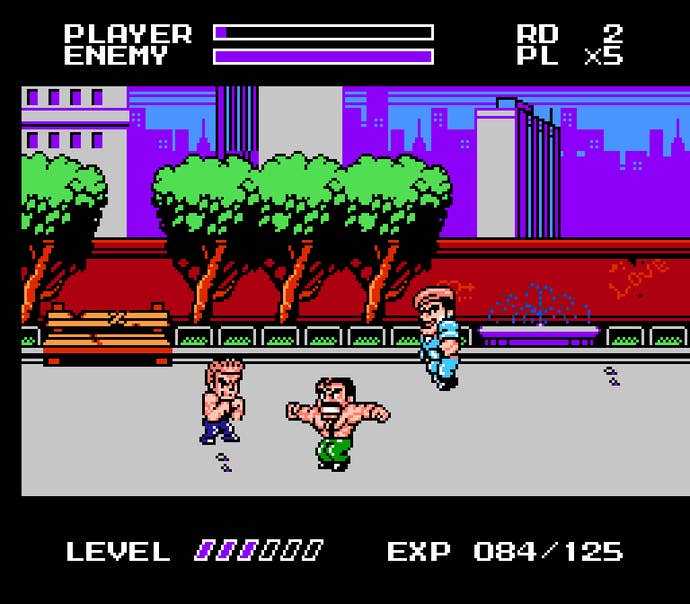For Classic Game Lovers, a Japanese 3DS Will Pay for Itself
Japan's relatively vibrant Virtual Console makes an import handheld a smart purchase.
This article first appeared on USgamer, a partner publication of VG247. Some content, such as this article, has been migrated to VG247 for posterity after USgamer's closure - but it has not been edited or further vetted by the VG247 team.
Boy, Nintendo's Virtual Console sure is a letdown, huh? All that promise, all that potential, and it just fizzled away. We never even got the Virtual Console version of Duck Hunt that Nintendo used to promote the Wii Remote back at E3 2006. What a rip.
But no, this isn't another tirade about Virtual Console's failings. Nintendo holds the keys to a truly magnificent archive of video games to help keep the medium's history alive, but they don't care to do much of value with them. The occasional victory (providing us with easy access to EarthBound for ten bucks instead of 300, for example) is eclipsed by all that the service could be, but isn't. So it goes, at least in the U.S. and Europe.
Meanwhile, the Japanese version of service still isn't quite perfect, but it offers a much richer assortment of software than in the West. That's probably to be expected; most Western publishers don't care to deal with handheld systems, and in any case Virtual Console covers systems that hail from an era where very few Western publishers cared to deal with consoles. I think you might be surprised at the sheer disparity between the offerings between regions, though; the Japanese 3DS Virtual Console offers almost twice as many games as its American counterpart. And let's not even talk about poor Europe....

Admittedly, not everything Japan's Virtual Console has to offer is particularly exciting. How many people are really crying themselves to sleep over the fact that they can't play notorious kusoge like Atlantis No Nazo on their American systems? I would think the answer is "not a whole heck of a lot." But if you skim over the crap, you can find a lot of genuine treasures on the Japanese 3DS.
This might seem the proper moment to insert a frothy rant about the idiocy of region-locked systems. And while I don't disagree on that point, complaining clearly won't solve anything. Instead, let's beat the system from within.
Specifically, I strongly encourage anyone with a sincere interest in having legal, legitimate, easy access to a huge variety of great and often rare classic games to import a Japanese 3DS. You can get one without too much trouble through an online importer like National Console Support. If NCSX's prices are too high ($240 for a standard 3DS, XLs starting at $340), you can also use an intermediary shopping service such as Celga to buy a used 3DS off of a Japanese auction site for much less – and getting a system used, where the money you spend doesn't go into the company's coffers, also means you're kind of sticking it to The Man in your own small way. Fight the power, friends.

Truth be told, though, even if you do drop $300-400 on a 3DS, you'll still come out ahead once you start buying Virtual Console games. Just as in the U.S., Japanese 3DS Virtual Console software costs in the $4-6 range (¥399-¥599)... and yes, your American credit cards work just fine on the Japanese service. If you know what you're looking for, you can buy $500-600 worth of games for maybe about $30. The 3DS Virtual Console in Japan contains a number of rare and interesting games on the cheap.
In fairness, so does the U.S. VC. Capcom's Shantae sells for insane amounts on eBay, but costs just a few bucks on 3DS and is currently a U.S. exclusive title; and both the Japanese and U.S. Virtual Consoles offer Recca. But the Japanese service contains a handful of games we'll almost certainly never have access to in the U.S., foremost among them the ultra-rare Trip World and the similarly precious Hebereke. Both games saw release in Europe (Trip World under its original title, Hebereke as U•four•ia: The Saga), but as both were published by Sunsoft it puts a crimp in their U.S. release prospects. Gaijinworks published U•four•ia for Wii Virtual Console a few years back, but evidently the company's relationship with Sunsoft dried up shortly thereafter.
So, we'll probably never see Trip World legitimately in the U.S., meaning the only way to acquire a copy legally would be to pony up hundreds of dollars for a cartridge-only copy on eBay. Likewise, both Hebereke and U•four•ia sell for about $100 sans box. On Virtual Console, however, Trip World will set you back ¥399 while Hebereke costs ¥499 -- about $3 and $4, respectively. Quite a savings. Other rare gems on 3DS Virtual Console in Japan include Rockman World 4 and 5 (aka the Game Boy Mega Man 4 and 5: $40 and $90 respectively); Mighty Final Fight ($90); and Bio Miracle Bokutte Upa ($120). Those prices, once again, are for the cartridges alone.

Granted, it's possible some of these games may see U.S. release; Capcom has made vague rumblings about bringing over its Virtual Console titles, and Bio Miracle Bokutte Upa inexplicably received a U.S. release on Wii. But the simple fact of the matter is that Japan gets all kinds of games America never sees, and it almost always receives its Virtual Console releases months, sometimes years before they make their way west. Besides the aforementioned big-ticket games, Japanese 3DS owners also currently have access to Final Fantasy, Fire Emblem, Super Mario Bros. 3, Castlevania: The Adventure, Double Dragon II, Bubble Bobble, several Shin Megami Tensei titles, and even TurboGrafx-16 games. Many of those will eventually trickle over to the U.S., but no one knows when. And then there are the B- and C-tier games we'll never see in the U.S. at all, but which have spiked in price overseas thanks to being featured on the popular Game Center CX television series. I'm not keen to drop $15-30 on interesting-but-janky duds like Challenger or Wings of Madoola. But five bucks each? Well, why not?
There's an easier answer to this than juggling systems, of course: You could always just download pirated copies of the games and play them on emulators. It's certainly easy enough to rationalize, given what a miserable job Nintendo and its constituent publishers have done of making these classics readily available for interested fans. A Trip World cartridge may cost $300, but as a tiny monochrome Game Boy release its ROM would eat about the same bandwidth as your Twitter avatar. Piracy won't help solve the underlying problem of classic game redistribution, though: Publishers need to be convinced there's value in dredging up and presenting these old games for sale (or, hopefully someday, for streaming).
I don't expect everyone to see the value of importing a handheld, though. Speaking as someone who's interested in playing and discovering interesting old games and prefers to acquire them legitimately whenever possible, I'm much happier to have taken the cash that could have paid for a copy of Trip World on eBay and poured it into acquiring a machine that can be used to further acquire even more inexpensive version of old games. Not to mention all the great modern games doomed never to be localized, too, like Dragon Quest VII and E.X. Troopers....
